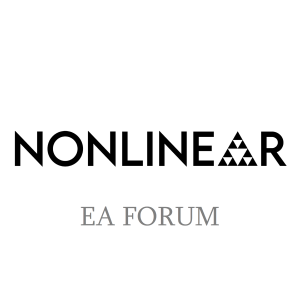
The Nonlinear Library: EA Forum
Education

EA - A review of how nucleic acid (or DNA) synthesis is currently regulated across the world, and some ideas about reform (summary of and link to Law dissertation) by Isaac Heron
 2024-02-06
2024-02-06
Welcome to The Nonlinear Library, where we use Text-to-Speech software to convert the best writing from the Rationalist and EA communities into audio. This is: A review of how nucleic acid (or DNA) synthesis is currently regulated across the world, and some ideas about reform (summary of and link to Law dissertation), published by Isaac Heron on February 6, 2024 on The Effective Altruism Forum.This is a post to share my Law Honours dissertation (link above) about the regulation of nucleic acid synthesis screening at an international level. I have also set out a summary below of the paper for those who do not have time/do not want to read the whole thing. This summary doesn't necessarily reflect the structure and emphasis of the paper, but instead focuses on some of the key insights I identified in my research which those on this forum who have an interest in biosecurity are unlikely to have already seen.I'm hoping to submit this for publication within the next few months, so if anyone has feedback for how to improve it (especially if I have some things wrong about the state of the law in each country I studied) that would also be appreciated. This article was also completed early in October 2023 so parts of it may be out of date, which it would be good to have highlighted (I am aware, for example, that it does not cover President Biden's Executive Order which includes provisions requiring the creation of future guidelines for nucleic acid synthesis screening).Introduction to the risks from nucleic acid synthesis (NAS)I won't cover this in much detail since introductions to the topic can be accessed elsewhere on this forum[1] and in the media,[2] except to give the following background:Nucleic acid synthesis (NAS) refers to the creation of DNA or other genetic molecules (e.g. RNA) artificially. This is done by several large companies and dozens of small ones across the world, who then deliver their product to researchers of various kinds. I will refer to NAS rather than DNA synthesis for the rest of this post because I think this broader category is what we really want to cover.The NAS process is currently undergoing rapid change, with new enzymatic techniques[3]potentially making it much cheaper to produce nucleic acids, especially at scale.Desktop synthesisers, which allow users to generate the sequences at their own labs, are also dramatically improving to the point that they may begin to replace the existing model where synthesis is mostly outsourced to private companies.[4]There are several publicly available databases of genetic sequences, which include various pathogenic sequences.The field of synthetic biology, which applies engineering and computer science tools to "programme" biology, may make it easier over time for those who have obtained synthetic nucleic acids to then use these sequences to recreate existing harmful pathogens (e.g. smallpox) or engineer even more dangerous pathogens.[5]Given these risks, it is often argued that NAS companies should screen their orders for potentially harmful sequences and screen their customers to ensure they are trustworthy. Although there are good argumentsfor why the perceived risk may be overblown, I think this is clearly something they should do. My dissertation focuses on the best way to ensure that this happens.Current well-known points regarding NAS regulationWhat I see as the key components of the international regulatory system for NAS are as follows:The International Gene Synthesis Consortium - a set of large gene synthesis companies which have joined together and agreed to screen their orders according to the Harmonised Screening Protocol. IGSC members agree to screen their orders against a shared database of sequences of concern derived from organisms listed on various official lists of organisms of concern.Two particularly important lists come from the Australia Group and the United States Select Agents and Toxins List.The United States Department o...
More Episodes
Create your
podcast in
minutes
- Full-featured podcast site
- Unlimited storage and bandwidth
- Comprehensive podcast stats
- Distribute to Apple Podcasts, Spotify, and more
- Make money with your podcast
It is Free
- Privacy Policy
- Cookie Policy
- Terms of Use
- Consent Preferences
- Copyright © 2015-2024 Podbean.com





